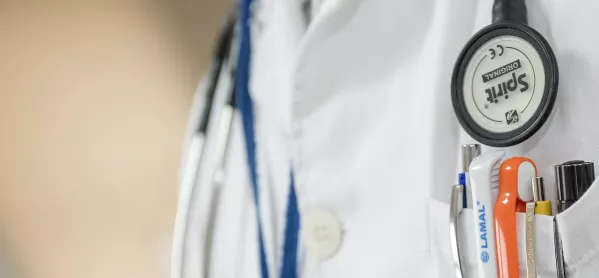- Home
- School reopenings: What teachers can learn from doctors
School reopenings: What teachers can learn from doctors

At the end of March, I was recalled to work in intensive care.
Newly qualified, I’d already worked on intensive care for four months as part of my junior doctor rotations and enjoyed its unique challenges to the point where I was considering specialising in it.
Intensive care is always a challenging environment at the best of times and not only because of the workload, but also because of the complex ethical and end-of-life issues we face on a daily basis.
This time, however, it was personal. I was vulnerable to the disease I was helping to treat and my own family were at risk as my mother and sister are both teachers at international schools in China and northern Italy.
Coming from a family of teachers and working as a doctor, I couldn’t help but notice the similarity in the challenges faced by both professions - adapting to new rules overnight; refusing to let the situation stop us from delivering our core services, no matter how hard; and finding ways to cope as best as possible.
And now, just as the initial problems that medical professionals faced are changing, teachers, too, are now facing their next major challenge - returning to the classroom.
Coronavirus: The loss of usual routines when schools reopen
One big change will be that the usual routines and structures are gone. This was something we faced in hospitals almost overnight, too. Indeed, it was one of the strangest elements I found during the crisis as old teams were broken up and new ones formed.
In a job where we rely on colleagues for active support and guidance, team building is important; we were going to have to rethink our reassuring tête-à-têtes on the sofa, yet still find a way to be there for each other when required.
After a shift, instead of sitting together with colleagues in the break room cradling a mug of warm coffee while we discuss patient wellbeing, we now stand apart from one another in wards that have been vacated because all elective surgery had been suspended.
Meanwhile, if anything, our esprit de corps has been tempered by sharing the common threat of contracting coronavirus and relaying it to loved ones.
Teachers will face similar issues - working in rotas, reduced class sizes, unfamiliar lesson structures, loss of easy social interaction...it will make it harder to easily engage in the same sense of team spirit and togetherness as usual.
But it will be there and you will help each other to get through it all, just as you have over the past two months.
And this is another point worth bearing in mind - the process is slow and there is no point fighting that.
The long haul
Even if an effective vaccine is found in time for the return to school in September, for many of us working in schools and hospitals the marathon will continue well beyond the autumn term.
Pupils returning to school will have missed vital weeks of their education; hospitals will have a massive backlog of patients whose treatment was suspended and whose needs have intensified.
Key workers in our education service and in the NHS will be under continued pressure for a long time to come.
The post-pandemic world will be very different to any we may have previously enjoyed or are currently enduring. Any “new normal” will be normal in name only.
When appropriate, the government has to show that it recognises the changed landscape of our public services and that any thought of returning to “business as usual” simply will not do. Resources and new skills will be needed to pick up the pieces of our battered education service and NHS.
Accepting that this will not happen overnight, it will take time for that return to school to feel normal again. The acceptance that pupils may not be the same as when you last saw them is an important part of adapting and coping with these environments.
The risk of teacher stress and burnout
Sadly, this might mean that teachers, as with healthcare workers, will increasingly suffer from post-traumatic stress and burnout.
But there are things we can do to address this.
GPs are making greater use than ever of social media for consultations and this practice needs to be built on, as indeed do the online lessons for pupils that have been so successful; yet for such initiatives to take root, it will take planning and resources.
In medicine we have adapted to the new reality whereby “virtual” clinics and online-based training for medical students and staff is commonplace. Education may embrace similar ideas.
More fundamentally perhaps, though, there will be the need to recognise the increased mental challenge that individual teachers and doctors themselves will face as part of any “new normal”.
Already in my own hospital we have recognised this new challenge and established a dedicated wellbeing centre where staff can unwind. There are sessions when senior doctors offer a listening ear and advice.
In such times with heightened levels of stress, we need to value more highly and deploy more readily our emotional intelligence, whether that is in the schoolroom or the hospital ward.
When the history of the pandemic is written, 2020 should be seen as a turning point in our NHS and education service.
Lessons learned at such a cost must lead to a better working environment and a more caring society.
Josephine Holt studied medicine at the University of Cambridge and University College London. She now works as a doctor in Birmingham
Keep reading for just £1 per month
You've reached your limit of free articles this month. Subscribe for £1 per month for three months and get:
- Unlimited access to all Tes magazine content
- Exclusive subscriber-only stories
- Award-winning email newsletters